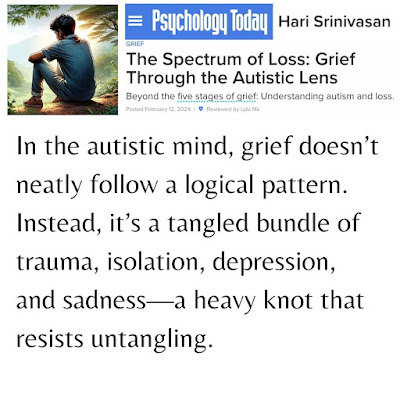Save the date: Wednesday, May 29Time: 10 AM PTEvent: Free Virtual PanelReserve your spot now at bit.ly/ambiv-events
I am very excited to share that, alongside
Kim Chua, we will be moderating the upcoming AAPI Autism Self-Advocacy Panel, an initiative by the AMBIV Collective to amplify the voices of autistic self-advocates within the AAPI community for AAPI/AANHPI/APIDA Heritage Month in May.
Join us on Wednesday, May 29 at 10 AM Pacific Time/ 1 PM Eastern Time for an empowering and insightful virtual discussion. Our incredible panelists, each with their own unique experiences, will be sharing their journeys of self-advocacy, exploring how they intertwine their rich cultural heritage with autism to foster change and understanding.
This panel is not just a conversation but a step forward in embracing the diversity of the autism community and ensuring that all voices are heard and valued.
Let's come together to support and learn from the experiences of the AAPI autistic community. I look forward to seeing many of you there!
Don't miss our upcoming online panel featuring inspiring autistic Asian American and Pacific Islander self-advocates! 🌟
Join us for an engaging conversation as they share their unique journeys, self-advocacy experiences, and insights on the intersection of autism and their cultural heritage. This event offers a valuable opportunity to learn, connect, and champion inclusion.









